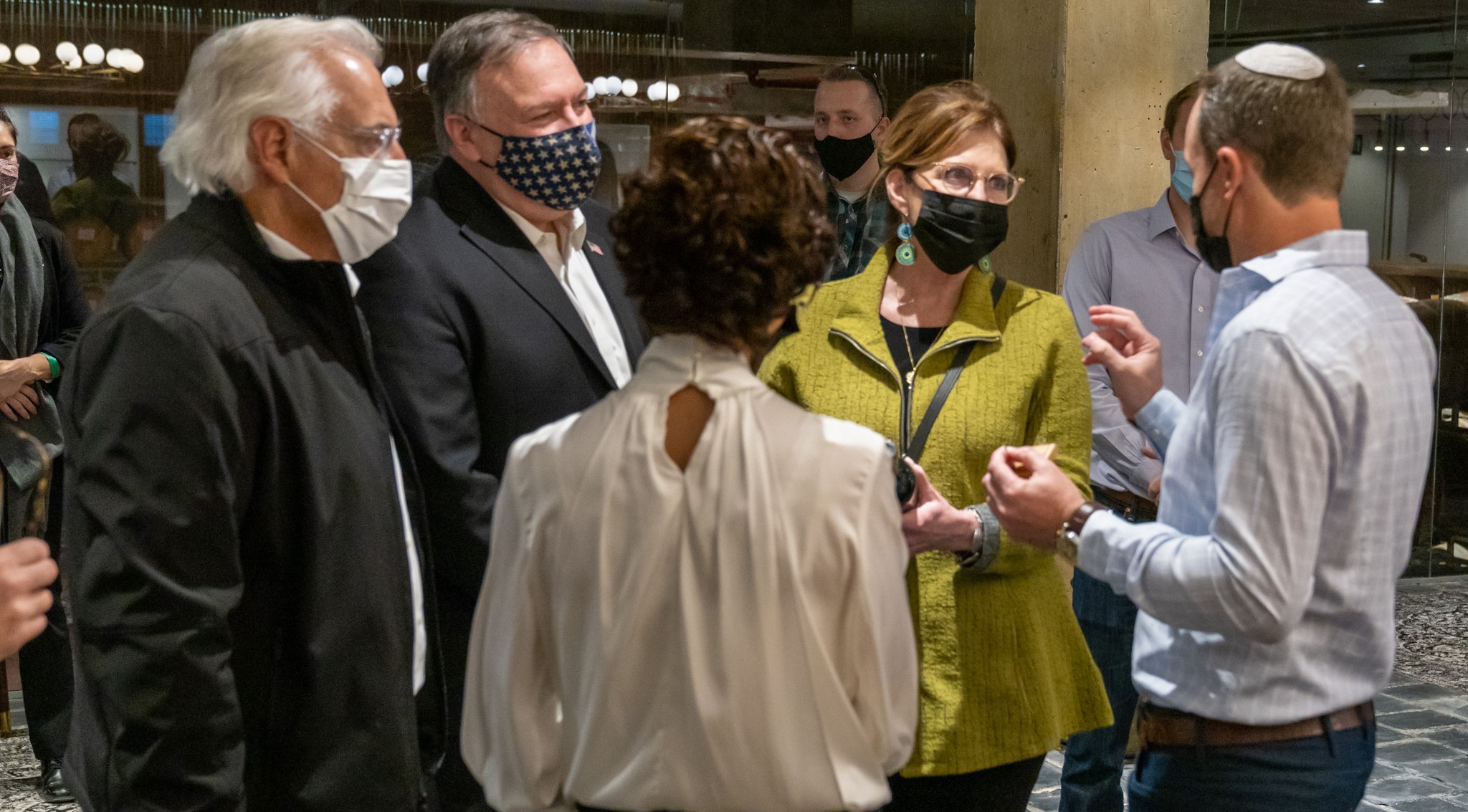US Customs and Border Protection announced on Wednesday, December 23, that an order requiring goods made in the settlements in the occupied Palestinian territories to be labeled as “Made in Israel” has come into effect. Since 1995, US policy has required products made in the West Bank and Gaza to be labeled as such. That directive was republished in 2016 by the Obama administration, which warned that labeling goods as “made in Israel” could lead to fines. It is currently unclear whether the incoming Biden administration will uphold the new order announced by the Trump administration.

US Secretary of State Mike Pompeo (second from left), his wife Susan (second from right), and US Ambassador to Israel David Friedman (first from left) visited the Psagot Winery in the occupied territories in November 2020. This was the first time that a US Secretary of State visited an Israeli settlement. (Photo: State Department)
US Secretary of State Mike Pompeo announced the policy shift in November following an unprecedented visit to a West Bank settlement, where he visited a winery. The senior American diplomat’s visit to the Psagot winery in the occupied territories was the first time a US secretary of state had visited an Israeli settlement. Pompeo later made his way to the Golan Heights for the first visit to the plateau by a top US diplomat since Trump administration recognized Israeli sovereignty over the occupied Syrian Golan last year.
During his Israel trip, Pompeo also announced that from now on Washington would designate as “anti-Semitic” the Boycott, Divestment and Sanctions campaign, which seeks to isolate Israel over its treatment of the Palestinians, and would take practical steps against BDS groups.
In 2015, the European Union published guidelines advising its member states to place consumer labels on settlements products produced in the occupied territories to ensure that customers understood that these items were not produced in Israel. The Palestinian Authority, peace movements in Israel, the Communist Party of Israel and Hadash went one step further and have called on the international community to boycott such products. The UN Human Rights Council has advised that those who participate in the production of such products could be engaged in a war crime. In February, it published a black list of companies engaging in business with settlements.
Related:


